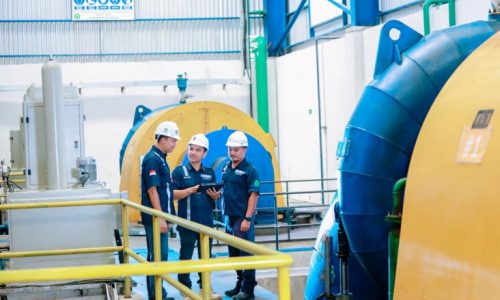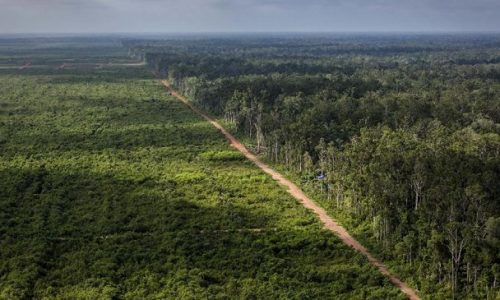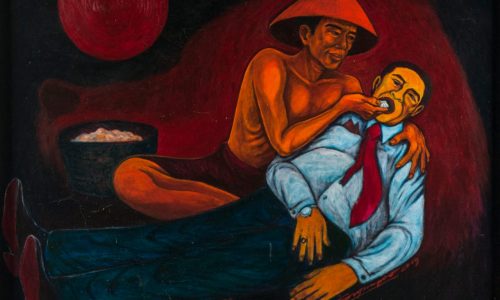Several non-profit organizations suspected that Sukanto Tanoto’s Royal Golden Eagle (RGE) Group is associated with deforestation in North Kalimantan.
RGE is a group led by Sukanto Tanoto that controls a number of shell companies behind a large-scale new pulp mill in North Kalimantan.
Sukanto Tanoto is the founder and chairman of RGE which focuses on developing timber businesses. The company explore various natural resources ranging from palm oil, kiln, pulp and paper, and power plants. The company has assets of more than US$20 billion with operations in Indonesia, China, Brazil and Canada.
RGE subsidiaries include:
- Asia Pacific Resources International Holding Ltd (APRIL) in the pulp and paper sector;
- Asian Agri and Apical in the palm oil sector;
- Sateri International and Asia Pacific Rayon in the pulp sector; And
- Pacific Oil & Gas in the energy sector.
Suspected involvement in deforestation
The non-profit organization tracks various RGE companies and reports that they are still related to deforestation in North Kalimantan.
Through research conducted by non-profit organizations in research entitled ‘Babat Kalimantan’ released by the Environmental Paper Network, Rainforest Action Network, Auriga Nusantara, Greenpeace International, and Woods & Wayside International, some of these companies include APRIL, Sateri, Asia Pacific Rayon, and Asia Symbol is related to supply chains related to deforestation under the RGE banner.
Sergio Baffoni, Senior Campaign Coordinator for the Environmental Paper Network, said several ‘shell’ companies in North Kalimantan are behind large-scale pulp mills.
“The RGE Group and their subsidiaries such as APRIL, Sateri, Asia Pacific Rayon and Asia Symbol made promises to eliminate deforestation in their supply chains. However, this report finds that these promises have not been kept,” said Baffoni.
According to reports, the RGE pulp mill in China, Asia Symbol, is suspected of using wood from PT Phoenix Respruces International that have recently cleared forests in Kalimantan.
Evidence shows that the results of document inspection show that there is a connection between RGE and the large-scale pulp mill that will be built by PT Phoenix Resources International on Tarakan Island, North Kalimantan.
The existence of the Phoenix factory has encouraged the development of large monoculture pulpwood plantation areas. It is believed to threaten the sustainability of natural forests.
“There are around 600 thousand hectares of tropical rainforest that are included in forestry concessions in Kalimantan, Papua and West Papua which are connected to RGE. With the construction of the new Phoenix factory, some of these forest areas could be threatened,” said Syahrul Fitra, Greenpeace Indonesia Forest Campaigner .
The existence of the new factory risks triggering deforestation and eliminating biodiversity, increasing greenhouse gas emissions, as well as the lives of people in the region.
Previously, demand for wood from pulp mills resulted in severe deforestation in Sumatra. Global Forest Watch data says deforestation in Indonesia reached 26.8 million ha during 2001-2019, mostly in Sumatra and Kalimantan.
The Riau region has the largest deforestation area of 3.81 million ha, Kalimantan 3.3-3.4 million ha, South Sumatra 2.75 million ha, Jambi 1.59 million ha, and North Sumatra 1.33 million ha.
RGE response
Ignatius Purnomo, Head of Corporate Communications of RGE Indonesia, responded to the allegation saying that there was no association or control over the two entities in the report.
“Therefore it is impossible and inappropriate for RGE to comment on matters related to these entities because they are not related to RGE,” he said.
He claims that RGE has been operating in accordance with the capacity of the sustainability framework according to the 2030 target. As well as focusing on climate change, protecting nature and the environment, and sustainable development, and not deforesting.









